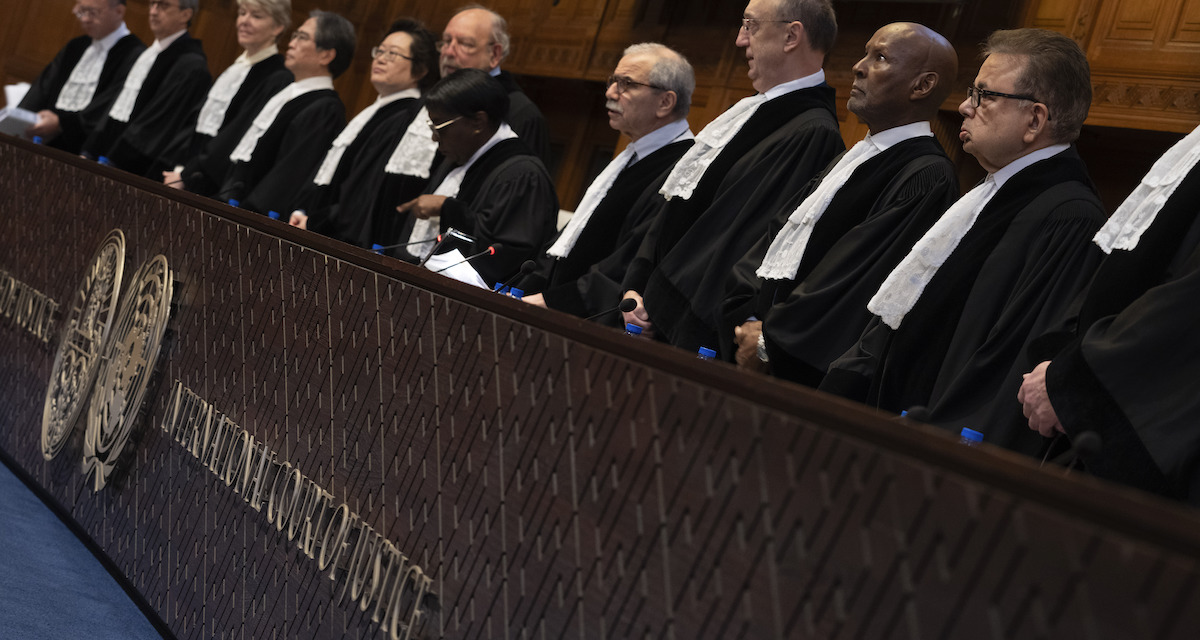Loading player
On Monday the International Court of Justice, the most important United Nations tribunal, began hearings in a proceeding concerning the legal consequences of Israel’s occupation of the West Bank and East Jerusalem: the Court, after hearing the depositions of representatives of over 50 countries, will have to express their opinion on the legal status of these territories and what the responsibilities of Israel and the international community should be in their management, which according to the accusation is at the origin of serious discrimination.
This case is separate from the genocide case brought by South Africa against Israel also at the International Court of Justice, and arose well before the war in Gaza. Furthermore, the Court was not asked to issue a ruling, but an opinion, which is not binding but should serve to legally guide UN member countries.
The proceedings on the occupied territories arise from a resolution voted by the UN General Assembly on 31 December 2022, therefore more than a year ago. The vote, then, provided that the Court would take care of considering “the occupation, colonization and annexation” that Israel would be carrying out in the occupied territories, “including measures aimed at altering the demographic composition, character and status of the Holy City of Jerusalem, and the adoption of discriminatory measures and legislation.”
By “occupied territories” we mean those territories (mainly the West Bank and East Jerusalem, as well as the Golan Heights) that Israel occupied after the Six Day War of 1967. Those territories have remained under de facto Israeli control since then, in what has been defined by various UN resolutions as an illegal occupation. Israel, however, believes that the status of those territories is under discussion and has yet to be established in future negotiations. The 1993 Oslo peace agreements established that at least in some areas of the West Bank the Palestinian Authority has civil powers, but the path that should have led from there to a progressive autonomy of those territories has been interrupted for some time. Indeed, Israel has authorized the movement of hundreds of thousands of settlers in the territories of the West Bank.
The Gaza Strip is not actually occupied by Israel, which withdrew from that territory in 2006, but a large part of the international community continues to consider Israel as an “occupying power”, because it controls the borders, trade and airspace of the Strip.
According to the Palestinians, the occupation, in addition to being illegal, creates a system of systematic discrimination in the occupied territories, where two different legal systems exist, and Palestinian citizens are denied numerous rights. For this reason, the UN General Assembly asked the Court to define the legal consequences of the occupation, both for Israel and for the international community.
It is not yet clear what this decision will entail. According to international law, the “occupying power” of a territory has very precise and stringent duties towards the population of the occupied territory, such as that of guaranteeing their well-being. Israel, however, rejects this status, and there is no reason to believe that it will accept a non-binding opinion from the Court on the matter.
From Monday to February 26, the Court will hear the opinions of all the countries participating in the case, which are more than 50 and which will express their opinions for or against. However, it will take months to get a verdict.
